Puerto Ricans Demonstrate How to Oust a Corrupt Leader
A mass movement forces Ricardo Rosselló, governor of the U.S. territory, to resign. Watch and learn.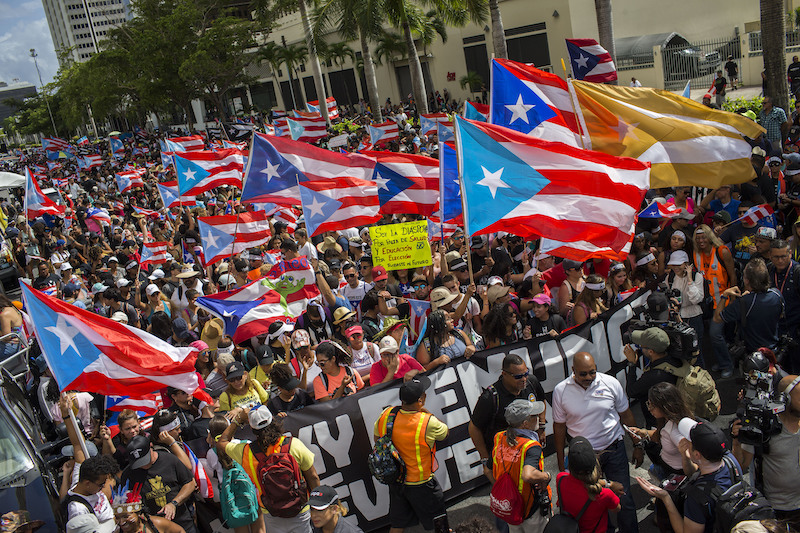 Puerto Ricans gather in San Juan to celebrate the resignation of Gov. Ricardo Rosselló. (Dennis M. Rivera Pichardo / AP)
Puerto Ricans gather in San Juan to celebrate the resignation of Gov. Ricardo Rosselló. (Dennis M. Rivera Pichardo / AP)
The movement that forced Ricardo Rosselló to step down as governor of Puerto Rico is one of the largest in the island’s history. It unified people across the ideological and political spectrum toward a common purpose: ending the governor’s corrupt regime. On Monday, hundreds of thousands of people gathered in San Juan to demand “Ricky Renuncia.”
Traveling to her native Puerto Rico to witness what was unfolding, political activist and journalist Rosa Clemente told me in an interview that rumors had spread on Monday that Rosselló was readying his resignation. But then, she said, “He doubled down again by giving a horrific interview on Fox News, and that made especially young people more angry and agitated and ready to stay in the streets.” Rosselló told Fox News’ Shepard Smith that while he wouldn’t seek re-election, he also would not resign on the same day that half a million of the island’s people were demanding he step down.
Two days later, more news outlets began reporting that Rosselló was expected to resign later in the day. Some claimed that he had recorded a farewell message. But as the hours wore on, nothing happened. At that point, the Puerto Rican Legislature threatened to begin impeachment proceedings against him unless he stepped down. Hours later, when the day was nearly over, Rosselló finally conceded. He refused to step down immediately, offering instead to resign Aug. 2.
The thousands of protesters who had remained on the streets of San Juan erupted in cheers and lit fireworks.
How did Puerto Rico’s mass movement mobilize and emerge victorious so rapidly? The protests, which have been going on for two weeks straight, are incredibly diverse, involving Puerto Ricans from all the municipalities, young and old, unionized and unemployed, white and black. Clemente said she considered Monday’s march “historic” in the context of Puerto Rican resistance. “The six-lane highway we were on was packed as far as the eye could see,” effectively shutting it down to traffic. Cruise ships were turned away, the majority of Puerto Rican-run businesses in San Juan were closed, and restaurants handed out free food and water in solidarity.
This mass uprising was triggered by the publication of nearly 900 pages of private chat messages between Rosselló and his aides, discussing in disparaging terms the victims of hurricanes Maria and Irma, and making homophobic remarks about LGBTQ Puerto Ricans, including the wildly popular Ricky Martin. Among the chats—dubbed “Rickyleaks”–was a playful threat to shoot Carmen Yulín Cruz, mayor of San Juan. Puerto Rico’s Center for Investigative Journalism (its Spanish acronym is CPI) obtained the chat messages and published them online, sparking outrage among the island’s residents, who have struggled for years with a debt crisis, poverty, widespread corruption and nearly 3,000 hurricane-related deaths in 2017 that have yet to be properly acknowledged.
Days before the chat messages were published, the FBI arrested two government officials in Rosselló’s administration on corruption charges involving the illegal awarding of federal contracts to allies and friends. In May, the FBI arrested three Puerto Rican officials on unrelated charges of corruption. A report by the CPI concluded that “the island is the target of a pillage of public funds perpetrated through the sale of influences, contracts and access to benefits in the government.” In other words, the whole system Rosselló presided over is corrupt, and Puerto Ricans now know the extent of it.
The night before Monday’s protest, Clemente conducted an interview with Cruz, who told her, “The world has heard the outcry of the Puerto Rican people, and let me tell you, this is about a lot more than a chat. What the chats did is [unveil] the true face of the governor of Puerto Rico.”
Julio Ricardo Varela, founder of the influential online media outlet LatinoRebels.com, told me in an interview last week that after the controversial chats were made public, Rosselló “got rid of everyone else on the group chat and then said, ‘Well, I’m staying.’ And that’s when the protests started happening.” He warned, “If Ricardo Rosselló continues to stay in office … it’s going to be the worst political damage in the history of Puerto Rico as a colony.”
Meanwhile, Donald Trump predictably took political advantage of the unrest by tweeting his disgust with both Rosselló—who recently threatened to punch Trump—and Cruz, who has been his fiercest Puerto Rican critic. He also claimed that “much of their leadership is corrupt, & robbing the U.S. Government blind!” While the first part of that statement is true, the second part is Trump’s attempt to obscure the fact that Puerto Ricans have been the target of almost criminal neglect by the federal government. He claimed that “the United States Congress foolishly gave [Puerto Rico] 92 Billion Dollars for hurricane relief,” a blatant lie that he has repeated many times.
“Washington has literally shut its doors to anyone who wants to lobby for Puerto Rico or talk about the island’s needs,” Varelo noted. “The members of the Puerto Rican political class are accomplices to the colonial system that the American government has created.”
Puerto Ricans feel betrayed by their territorial government and forgotten by the federal government. It’s no wonder they pledged to remain on the streets until Rosselló left office.
What comes next remains to be seen. Secretary of Justice Wanda Vázquez is next in line of succession. But even before Rosselló resigned, Puerto Ricans were demanding an alternative to Vázquez, tweeting #WandaRenuncia and chanting the refrain in the streets. It appears that they will not settle for another figurehead in the top position of a regime that has proven itself to be deeply corrupt.
What’s happened in Puerto Rico provides important lessons for all Americans fed up with our deeply corrupt, racist, misogynist and hateful commander in chief. A sustained mass movement that is committed to changing the system can bring about a revolution, if the circumstances are right. The movement in Puerto Rico succeeded on the same day that contentious, arguably disastrous, hearings on the Robert Mueller investigation were held in Washington, D.C., by lawmakers hoping to drum up public support for impeaching the president. In Puerto Rico, massive grassroots pressure pushed the Legislature to threaten impeachment and force Rosselló’s hand. The same can—and should—happen here, at the federal level.
Your support is crucial…With an uncertain future and a new administration casting doubt on press freedoms, the danger is clear: The truth is at risk.
Now is the time to give. Your tax-deductible support allows us to dig deeper, delivering fearless investigative reporting and analysis that exposes what’s really happening — without compromise.
Stand with our courageous journalists. Donate today to protect a free press, uphold democracy and unearth untold stories.
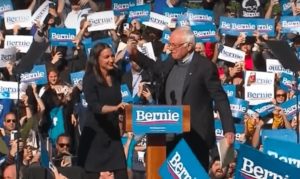
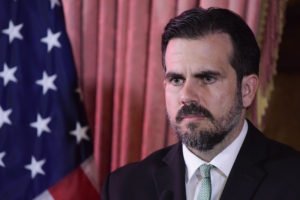
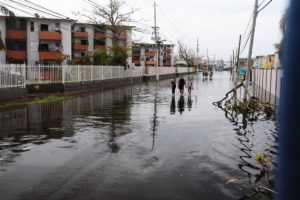
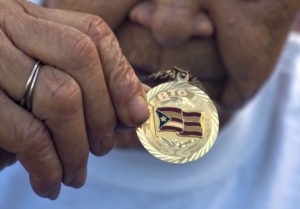
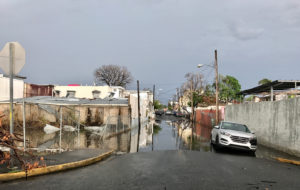
You need to be a supporter to comment.
There are currently no responses to this article.
Be the first to respond.